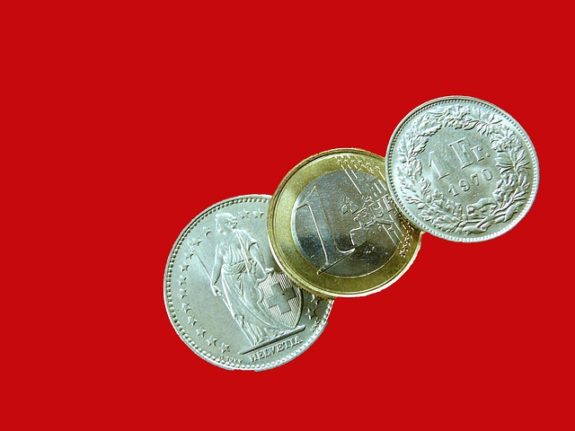After being first implemented in New Zealand and Australia in the 1980s, minimum wage laws have spread across the world. Most European countries have now put in place some form of minimum wage limit.
When compared to its European neighbours – or countries globally – Switzerland is known for its high salaries. Therefore, it is perhaps surprising to find out that the country does not have an officially mandated minimum hourly wage.
One canton – Neuchâtel – has put in place minimums, while Jura has recently approved a minimum via a referendum, but hasn’t yet put it into law.
REVEALED: The best and worst jobs in Switzerland
The remaining cantons have not followed suit, while there is no minimum at the federal level. In 2014, Switzerland held a referendum on whether to set the minimum wage at CHF22, but the move was rejected.
That does not however mean that your employer is free to pay you as much – or as little – as he or she wants. Instead, the minimum amount you can be paid will be determined through negotiations with your employer which will may feature a trade union representative.

Road work. Image: Depositphotos
Minimum wage in Switzerland
To expats arriving from other countries – particularly English-speaking ones – the idea of not having a federally-set minimum wage is sometimes hard to grasp.
Whether this be an hourly amount or one which is set for full or part-time hours, setting a minimum standard in specific industries is a common way to ensure workers aren’t underpaid or unpaid.
READ: The cost of parenting in Switzerland – and how to save money
In Switzerland, minimum standards are not set by law, but by collective or individual bargaining with your employer.
Generally, collective agreements will be negotiated by trade union representatives and will apply to an entire industry or in an entire canton, meaning that you yourself do not need to negotiate.
There are however some jobs or industries – usually for jobs with higher incomes or which are less common – where negotiations will take place on an individual basis.
These agreements will not just cover a minimum payment amount, but they will also set benefits, holiday pay and working conditions.
The government has published a list of collective agreements based on different industries and cantons to give you an idea of how much you will be paid. This can be found here.
Minimum wage in Europe
In total, 22 of the 28 European Union countries have an officially prescribed minimum wage.
The EU countries without a legally mandated minimum wage include Italy, Sweden, Finland, Austria and Denmark, while non-EU countries like Switzerland and Norway also don’t have federally set minimums.

Minimum wage in Europe in 2018 (in $US) Image: Wikicommons
While this lack of a statutory mark might be unusual, in these countries – as with Switzerland – there are various other collective agreements and influences which will prevent employers from undercharging workers.
Indeed, the ‘nominal’ minimum wages in these states – the figure which is generally seen as the minimum wage without being legally mandated – is higher than those in some countries where a specific mark is set.
p.p1 {margin: 0.0px 0.0px 0.0px 0.0px; line-height: 14.0px; font: 12.0px Helvetica; min-height: 14.0px}
p.p2 {margin: 0.0px 0.0px 0.0px 0.0px; line-height: 14.0px; font: 12.0px Helvetica}
p.p3 {margin: 0.0px 0.0px 0.0px 0.0px; line-height: 14.0px; font: 12.0px Times; color: #0000e9; -webkit-text-stroke: #0000e9}
span.s1 {text-decoration: underline ; font-kerning: none}



 Please whitelist us to continue reading.
Please whitelist us to continue reading.
Member comments